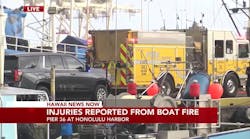The history of EMS has been an exciting journey that dates back to the Civil War. It’s been an evolution that’s affected the profession and shaped the roles and responsibilities of first responders who provide emergency medicine. Prehospital emergency care systems emerged because of the growing need for systematic and organized care and transportation of the injured.
One of the earliest and most essential findings in the history of EMS was the importance of speedy response and accessibility. Injuries that soldiers sustained in World War I and World War II underscored the need for rapid clinical intervention and transport to save lives. Wars caused the establishment of more structured EMS and ambulances that had essential medical devices.
The 1966 white paper, “Accidental Death and Disability: The Neglected Disease of Modern Society,” highlighted the damaging epidemic and the inadequacy of pre-health center care. This led to the development of EMS globally as we know it today.
Today, globally, EMS structures prioritize speedy response and treatment, observing that time is of the essence in all life-threatening emergencies.
Air transportation and trauma centers were developed. Consistency of education, skills and protocols became essential.
As EMS advanced, it became apparent that standardization became necessary to ensure continuity and to enable providers to render excellent emergency medical care. These lessons have shaped the development of EMS into what it means today: an essential healthcare entity. Significant advancements in medicine, integration of services and research have aided the evolution of EMS.
Advances
Integrating EMS with fire and police has facilitated more coordination of emergencies, ensuring essential assets for patient outcomes and care. Collaboration also promotes better communication and teamwork, which improves the general effectiveness of response and treatment.
Additionally, integrating computer-aided dispatch systems and GPS has improved response times and resource allocation. This ensures that the right help quickly arrives at the right place at the right time.
Advancements in medicine and techniques have improved the high quality of emergency care and created transportable defibrillators and specialized definitive care entities, such as trauma and STEMI centers, for coordinating definitive care. Recognizing the significance of prehospital medical care has shifted the focal point of EMS from just transporting to providing enhanced care for the patient’s duration, which affects survivability and outcomes. Telemedicine has provided first responders with emergency medical treatment through communications with a healthcare facility, which improves many patients’ survival and recovery.
Community involvement is critical, as public education campaigns have empowered civilians to act in emergencies. Teaching the public CPR, safety education and awareness, Stop the Bleed, and other programs is essential to patient survival and outcomes. Public education campaigns that help people to recognize the signs of a stroke or heart attack also are vital. The campaigns have empowered civilians to effect the outcome of lives during emergencies. Community paramedicine also has been crucial, which has led to a more resilient and responsive healthcare system.
The future
The history of EMS has furnished valuable lessons that continue to shape and enhance emergency medical care, evolving and improving skills and treatment. Lessons learned will remain imperative to saving lives and providing appropriate medical care. As EMS adapts, medical advancements remain quintessential to presenting essential care to those who are in need. By persevering in community involvement and ongoing education and implementing research-proven technological advancements in medical treatment, EMS will remain a crucial aspect of present-day emergency healthcare providers.






